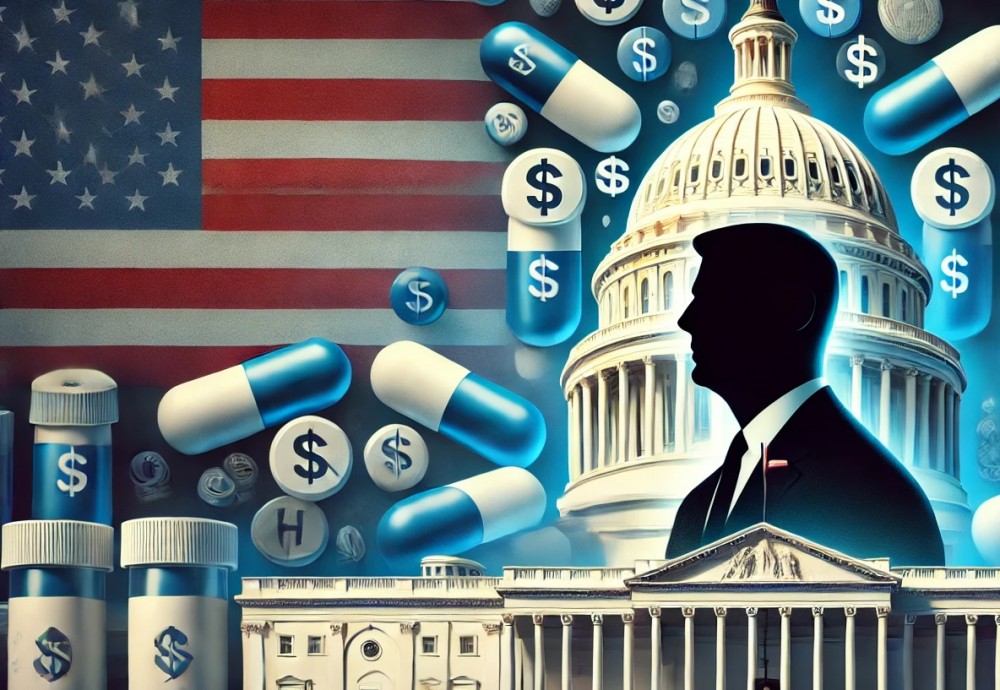ORIGINALLY PUBLISHED ON THE DEFENDER
U.S. Senate Finance Committee members who will vote first on Robert F. Kennedy Jr.’s nomination for HHS secretary individually have accepted “hundreds of thousands of dollars in contributions from the pharmaceutical industry,” The Federalist reported.
U.S. Senate Finance Committee members who will vote first on Robert F. Kennedy Jr.’s nomination for U.S. Department of Health and Human Services (HHS) secretary individually have accepted “hundreds of thousands of dollars in contributions from the pharmaceutical industry,” The Federalist reported.
“Republicans overall brought in nearly $5 million from the pharmaceutical industry across 13 members while Democrats raised more than $1.7 million across 9,” according to The Federalist.
Earlier this month, President-elect Donald Trump nominated Kennedy, founder of Children’s Health Defense (CHD), to lead HHS. The Senate Finance Committee, which will attain a Republican majority in the new Trump administration, will hold confirmation hearings for Kennedy in January.
Kennedy’s nomination has Big Pharma “bracing for generational changes threatening Wall Street’s bottom line,” The Federalist wrote, noting that Big Pharma lobbyists “are almost certainly calling” committee members from both parties.
CHD CEO Mary Holland said the pharmaceutical lobby is “the most powerful one” on Capitol Hill, which makes Kennedy’s confirmation challenging.
Holland added:
“With the president’s strong backing, however, and aligned nominations for key leadership roles under HHS, Kennedy appears to have excellent odds at becoming the next HHS secretary. We hope CHD’s agenda to end the epidemic of chronic childhood diseases will be well served in the new administration.”
Committee members raked in over $6.7 million in pharma donations
According to The Federalist’s analysis, pharma contributed more than $6.7 million between 2019 and 2024 to members of the Senate Finance Committee.
Among Republican committee members, the largest recipient of Big Pharma contributions is Sen. Thom Tillis (R-N.C.), who received more than $679,000. He was followed by Sen. Bill Cassidy (R-La.) at more than $667,000 and Sen. Tim Scott (R-S.C.) at almost $564,000.
Among Democrat committee members, Sen. Catherine Cortez Masto (D-Nev.) was the biggest recipient of Big Pharma donations — nearly $460,000 over the past five years. She was followed by Sen. Maggie Hassan (D-N.H.) with over $360,000 and Sen. Ron Wyden (D-Ore.) at approximately $352,000.
According to The Federalist, the donations don’t necessarily mean senators are “inherently compromised.” The Federalist cited Sen. Ron Johnson (R-Wis.), the recipient of over $124,000 in Big Pharma donations in the last five years, but who has held a series of roundtables critical of the industry.
In September, Johnson hosted a Senate roundtable on the chronic disease epidemic in the U.S., featuring Kennedy and key figures in the medical freedom movement. Last week, Johnson demanded public health agencies provide unredacted documents about the development and safety of the COVID-19 vaccines.
Journalist and former U.S. Senate investigator Paul D. Thacker told The Defender that Senate Finance Committee members are targets for Big Pharma contributions “because it’s the most powerful committee in the Senate.” But he added, “I never noticed that this money affected my work.”
Some key committee members support Kennedy’s nomination
Politico reported that Kennedy is expected to “make the rounds on Capitol Hill” after Thanksgiving, meeting with senators as he seeks to win their votes and that several key Republicans on the Senate Finance Committee have publicly supported Kennedy’s nomination.
According to Forbes, if all Democrat members vote against him, Kennedy could still lose up to three votes from Republican committee members for his nomination to reach the full Senate for a vote.
Seamus Bruner, director of research at the Government Accountability Institute, said that some Democrat senators may vote to confirm Kennedy.
“Kennedy’s best chance at confirmation may entail quietly persuading as many health-minded Democrats as he can to vote in his favor to counteract any Republicans that vote against him,” Bruner said, noting that the “Make America Healthy Again” agenda “has broad, bipartisan populist support.”
In an interview with Wisconsin Public Radio last week, Johnson said he thinks Kennedy will “do an extremely good job, because it’s kind of hard to refute the truth, and he’ll be laying out many truths.”
Sen. Mike Crapo (R-Idaho), the committee’s top Republican, attended Johnson’s September roundtable. He said Kennedy has “prioritized addressing chronic diseases through consumer choice and healthy lifestyle” and that “American patients, providers and taxpayers deserve a health care system that is efficient, effective and affordable,” Politico reported.
In a tweet, Sen. Marsha Blackburn (R-Tenn.) called Kennedy’s nomination “Another great choice by President Trump.” She said she believes Kennedy “will honor his commitment to put the health of Americans first.”
As Secretary of Health and Human Services, @RobertKennedyJr will honor his commitment to put the health of Americans first.
Another great choice by President Trump. pic.twitter.com/KlStejm9TJ
— Marsha Blackburn (@VoteMarsha) November 14, 2024
Catherine Austin Fitts, founder and publisher of the Solari Report and former U.S. assistant secretary of Housing and Urban Development, expects Kennedy to be confirmed.
“If not, he will move into the position on a recess appointment,” Fitts said — referring to a legal procedure through which the president can name appointees to lead federal agencies while the Senate is in recess.
Pressure from Big Pharma and Big Food may be countered by public support for Kennedy’s nomination and his “Make America Healthy Again” agenda. According to a CBS News/YouGov poll earlier this week, 47% of respondents said Kennedy was a good choice for HHS secretary, while 34% said he was not a good pick.
“Of five nominees the poll asked about, Kennedy received the highest marks, followed by Trump’s pick for Secretary of State, Marco Rubio, who 44% of respondents said was a good choice,” Forbes reported. According to Politico, “Kennedy has a smoother route to confirmation than several other Trump picks.”



















It will be hard to fight entrenched interests, but RFK Jr and Dr Bhattacharya can do it if anyone can!
Lobbying is a fancy word for bribery.
If this “cancer” is to be stopped, lobbying needs to be abolished.
Politicians and law makers must not be permitted to receive funding from anyone.
Their wage should be enough.